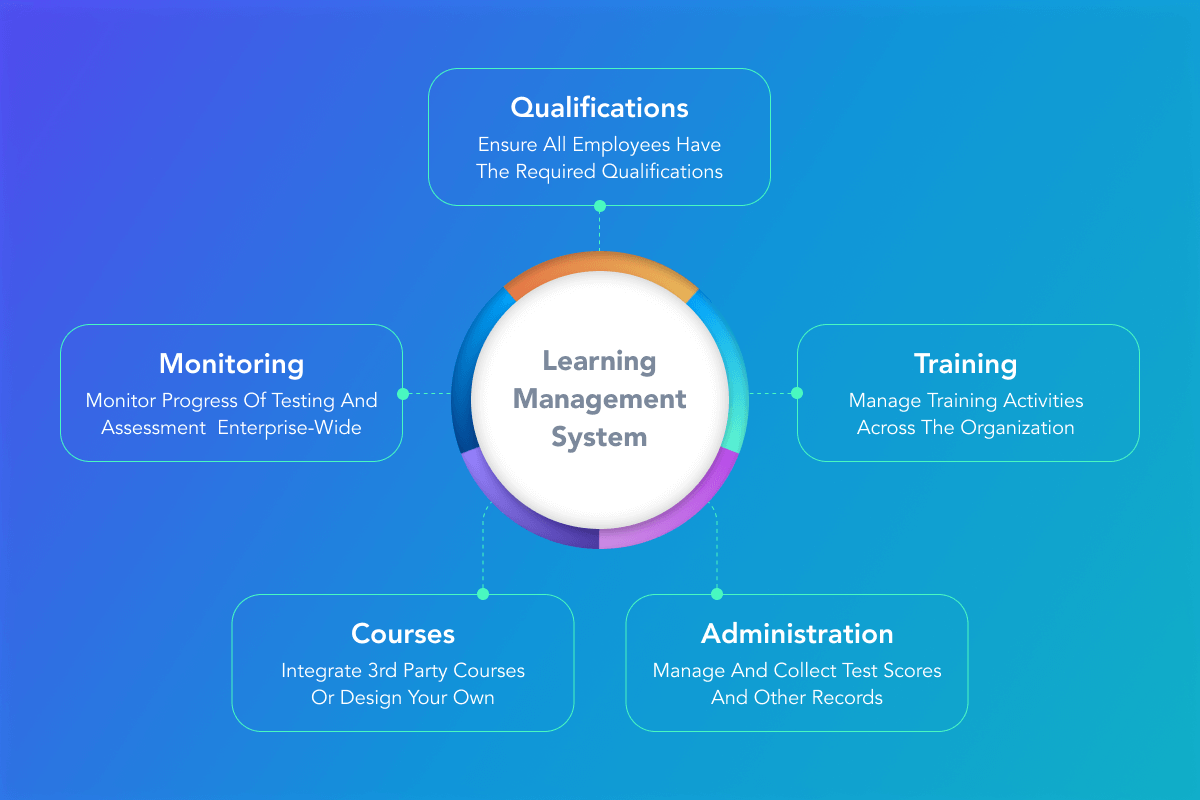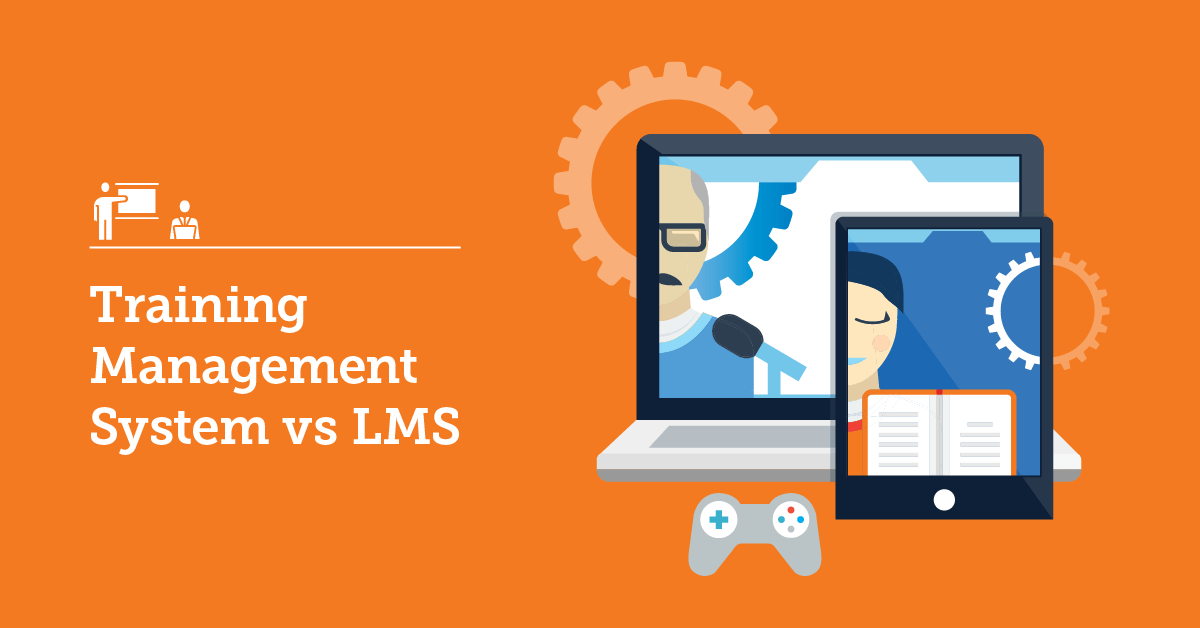Picking the most effective Understanding Management System for Your Organization
Choosing the optimal Understanding Monitoring System (LMS) for your organization is a diverse choice that calls for mindful consideration of different elements. From specifying precise understanding objectives that resonate with your calculated vision to reviewing user experience, each variable plays an essential function in the general performance of the system. In addition, comprehending integration capabilities and making certain scalability for future needs can not be ignored. As organizations strive for performance and growth, the selection of an LMS comes to be significantly considerable. What are the crucial considerations that can influence your decision-making process?
Define Your Understanding Goals
Specifying clear learning objectives is necessary for the effective implementation of a Discovering Monitoring System (LMS) These objectives act as a roadmap, assisting the growth of content, evaluations, and total instructional approaches within the LMS. By developing details, measurable, attainable, appropriate, and time-bound (WISE) goals, companies can make sure that the understanding experiences are lined up with their strategic purposes and learner requirements.
Reliable discovering purposes must envelop what students are anticipated to recognize or be able to do upon completion of a training course or training program. This quality not just help in content creation however additionally assists in the examination of student development and the overall performance of the LMS. Learning Management System Singapore. Distinct objectives make it possible for stakeholders to examine whether the selected LMS performances and attributes line up with their educational objectives.
Assess User Experience
Once discovering objectives have actually been established, examining customer experience becomes a vital following action in choosing an ideal Learning Monitoring System (LMS) User experience encompasses the general fulfillment and simplicity with which learners interact with the system. A properly designed LMS needs to facilitate instinctive navigating, making certain that customers can situate training courses, materials, and support effortlessly.
To assess user experience, consider performing usability testing with a depictive sample of end-users. This can provide useful understandings right into just how learners involve with the system. Secret variables to review include the LMS's user interface layout, accessibility features, mobile compatibility, and the quality of directions provided. Individual feedback is vital; gathering surveys or conducting meetings can disclose common pain factors and locations for enhancement.
In addition, assess the availability of assistance resources, such as tutorials and help facilities, which can improve the customer experience. The responsiveness of consumer support is likewise important; timely assistance can significantly minimize frustrations that individuals may experience. Ultimately, picking an LMS that prioritizes customer experience not just improves the learning process however also fosters greater engagement and fulfillment among students.
Evaluate Integration Capacities
Acknowledging the relevance of smooth capability, evaluating integration capabilities is important when picking useful source an Understanding Monitoring System (LMS) An effective LMS should facilitate interoperability with existing systems, such as Personnel Administration Solution (HRMS), Consumer Relationship Management (CRM) platforms, and various other academic devices. This integration improves data circulation, reduces management worries, and makes certain a cohesive understanding atmosphere.
When assessing an LMS, take into consideration the kinds of integrations supplied. Search For Application Shows Interfaces (APIs), Solitary Sign-On (SSO) capacities, and pre-built ports that enhance integration processes. Furthermore, confirm the LMS's ability to incorporate with third-party devices, such as material collections or assessment platforms, which can dramatically enhance the understanding experience.

Think About Scalability and Versatility
As organizations advance, the capability of an Understanding Management System (LMS) to range and adjust becomes significantly essential. A scalable LMS can suit growth in user numbers, course visit this web-site offerings, and material without compromising efficiency or individual experience. As businesses broaden, whether via boosted employees, new locations, or varied training needs, the LMS needs to effortlessly expand alongside these adjustments.
Flexibility is equally necessary; a reliable LMS has to sustain numerous discovering techniques, such as online, combined, and mobile knowing. This flexibility permits organizations to respond promptly to emerging trends in training and advancement, making sure that they can use relevant and appealing discovering experiences - Singapore LMS. Furthermore, the system must offer personalized attributes, making it possible for companies to customize the LMS to their particular requirements and branding
Additionally, an adaptable LMS must incorporate conveniently with existing platforms and devices, assisting in a natural learning ecosystem. Hence, when selecting an LMS, it is vital to analyze not only its present capabilities yet also its potential to expand and adapt abreast with the organization's calculated goals and developing finding out requirements. This foresight can dramatically improve the long-lasting feasibility of the picked LMS.
Evaluation Expenses and Budgeting
When reviewing a Discovering Management System (LMS), evaluating prices and budgeting is necessary to ensure that the financial investment straightens with the organization's economic capabilities and calculated goals. Organizations must begin by identifying the complete cost of ownership, which includes licensing fees, execution expenses, maintenance, and any type of added expenses such as training and technological support.
It is crucial to compare various LMS options, as pricing designs can differ considerably amongst suppliers. Some systems may use a subscription-based model, while others may bill an one-time fee. Organizations should additionally consider the scalability of the LMS; as they grow, the cost framework might alter, influencing lasting budgeting.

Final Thought
Choosing an ideal Learning Administration System (LMS) is vital for accomplishing business understanding purposes. Eventually, the right LMS serves as a critical tool in promoting a reliable understanding setting and driving business success (Learning Management System Singapore).
Choosing the ideal Understanding Management System (LMS) for your company is a complex choice that calls for cautious factor to consider of various aspects.Defining clear knowing objectives is vital for the successful application of a Discovering Administration System (LMS)Once finding out goals have actually been developed, reviewing customer experience ends up being an essential following step in picking an appropriate Knowing Management System (LMS)As companies progress, the capability of an Understanding Management System (LMS) to scale and adjust ends up being progressively important.Choosing a suitable Understanding Administration System (LMS) is crucial for achieving business learning objectives.